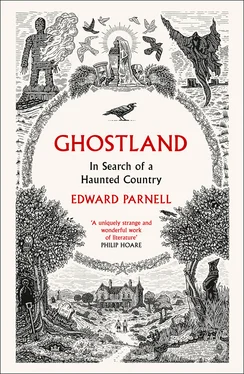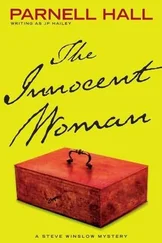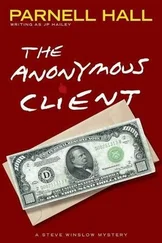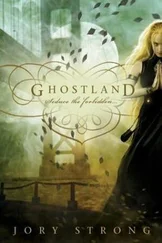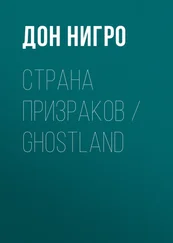I loved to explore the woods in the company of Uncle Gordon and Great-Uncle Billy. The countryside was dense and wild, and formed part of a large estate. Both uncles worked on the local farm and lived with Nan in a tied cottage. There were crystalline streams forded by narrow planks we would cross on our hikes over the rippled landscape, watercress beds we would wade through in our wellies (‘waterboots’ to Uncle Billy), and numerous birds and other signs of wildlife all around. Bill, a kindly giant of a man who had barely left Norfolk apart from brief twice-yearly visits to us in neighbouring Lincolnshire, would impart rural lore and show me how to find the best branches to carve into walking sticks, or how to make a bow and shoot elder-tipped arrows.

Sometimes all of us would go on a ramble together after dinner, Mum and Nan taking delight in picking the pale-yellow primroses that emerged through the damp leaf-litter of early spring while Dad and Uncle Gordon reminisced about sport or bickered about politics. I spent several summer holidays there too, loving the freedom of being able to explore the woods every day on my own. One time Billy pointed out the enticing, but potentially fatal, deadly nightshade berries that swathed the crumbling flintwork of an old barn. Much later, when I read L. P. Hartley’s most famous novel, 1953’s The Go-Between – set at Brandham Hall, a fictionalised version of West Bradenham Hall, a few miles across the fields from Nan’s house – I was reminded of that plant, which is imbued with layers of symbolism in the book: ‘It looked the picture of evil and also the picture of health, it was so glossy and strong and juicy-looking.’*
Leslie Poles Hartley was born at the end of 1895 in the Fens at Whittlesey, not far from our home. One of his earliest pieces of writing was a schoolboy essay about nearby Crowland Abbey, the partial ruin for which John Clare had composed his sonnet; the Abbey reappears as a key location in Hartley’s 1964 novel The Brickfield , in which its central character Richard declares: ‘we were Fenlanders, as accustomed to the horizontal view as clothes-moths on a billiard table’. As fellow flatlanders, Hartley and I were bewitched by the otherness of the wooded Norfolk countryside after being raised among the empty expanse of all those breeze-stripped washes and ruler-straight droves; the same River Nene of John Gordon’s The House by the Brink and Peter Scott’s lighthouse flowed less than half a mile from the gothic Fletton Tower where the young Leslie grew up, and which Hartley’s solicitor father had overstretched himself to buy in 1900.
Aged twelve, Hartley was packed off to prep school in Kent in the autumn of 1908, but was invited to Bradenham in the following August by a rather grander classmate, Moxey (his surname an approximation of The Go-Between ’s Maudsley). The hall – the ancestral home of Henry Rider Haggard – had been rented by the Moxeys, and it was at Bradenham where Hartley found the inspiration for his book’s class-warfare cricket match, its grand dances, its late dinners, and one of the most memorable opening lines in literature: ‘The past is a foreign country: they do things differently there.’
The novel’s thermostat-breaking weather, however, did not occur in the course of Hartley’s stay at Bradenham, but was based on his earlier recollections of the burning first Fenland summer of the nascent century. I originally read The Go-Between in a similar heatwave, when I was travelling across the Australian outback on a Greyhound bus – the landscape of the familiar never seems so appealing as when you are adrift in an utterly foreign one. I was captivated by the book, which was set in the Edwardian era – though Edwardian isn’t quite accurate as its action mostly takes place during August 1900, five months before Queen Victoria’s death and the end of what Hartley himself would come to see as a lost ‘Golden Age’.
The Go-Between isn’t a disquieting novel in an M. R. James sense – although the childish spells and curses that Leo casts unwittingly possess more efficacy than the conjurings of Mr Abney in ‘Lost Hearts’ – but L. P. Hartley did also happen to be a solid teller of macabre tales. A number of these were assembled in The Killing Bottle (1931) and The Travelling Grave (1948); the latter collection was brought into print by the American publishers Arkham House, set up a decade before by August Derleth and Donald Wandrei to preserve the ‘weird fiction’ of the early twentieth-century New England writer Howard Phillips Lovecraft.† Lovecraft himself praised Hartley’s ‘A Visitor from Down Under’ as an ‘incisive and extremely ghastly tale’ – its title is a play on words, as the visitor in question happens to be the revenant of an Australian who is coming to enact icy revenge on his murderer (newly arrived in the comfort of a London hotel), and to ‘fetch him away’.
The Go-Between is a different kind of work, far subtler and more refined. And yet, I find its pervasive atmosphere of regret (an emotion the repressed Hartley had strong personal experience of) and its dissection of the difficulties of trying to make sense of what has gone before more unsettling than his ghost stories. Re-reading The Go-Between it resonates even more strongly with me now than on my first encounter, as I, like the aged Leo Colston, attempt to exhume my past.
Unlike Leo – and possibly Hartley himself, who later hinted that he had experienced a similarly character-forming event during his stay at Bradenham – I did not see something nasty in the woodshed during those Norfolk summers. Hartley’s book, with its naïve narrator – the embodiment of ‘greenness’ in his newly gifted Lincoln Green suit – who is privy to an adult world beyond his comprehension, certainly fed into my novel The Listeners . However, the most outwardly apparent influence was Walter de la Mare’s enigmatic thirty-six-line poem which gave me the title, as well as a template for my novel’s mood, and its key location: a tumbledown cottage among the trees being subsumed by the unrelenting forces of nature. There was no such ‘ghost house’ in the woods around my grandmother’s house – at least not one I ever came across – something I should probably be grateful for. Spooky cottages in the heart of the forest are not safe retreats for youthful visitors in ghost stories and fairy tales.
Take, for instance, another notable ethereal woodland dwelling, one that exists in the hugely atmospheric ‘Brickett Bottom’ by Amyas Northcote, son of the noted politician Sir Stafford Northcote.‡ The young Northcote attended Eton at the same time as M. R. James (though there appears to be no evidence of any connection between them while fellow pupils), before going up to Oxford and then – following the death of his father – on to a business career in Chicago. It was in the States that his talent for writing was first publicly displayed in various pieces of journalistic political commentary. He returned to England around the turn of the new century, though little is known about his subsequent activities, except that he acted as a justice of the peace in Buckinghamshire. In 1921, out of nowhere, Northcote’s sole book, In Ghostly Company , was published. Its contents are, on the whole, subtly mysterious tales that can seem slight, but possess a lingering ability to haunt the reader. Like ‘In the Woods’, in which a seventeen-year-old girl becomes beguiled by the wildness, beauty and otherness of her surroundings – ‘The woods enthralled her’ is a repeated refrain – it is a story bathed in a dreamlike atmosphere that’s reminiscent of Blackwood’s ‘The Man Whom the Trees Loved’ or Arthur Machen’s ‘The White People’.
Читать дальше
